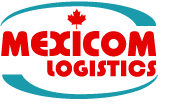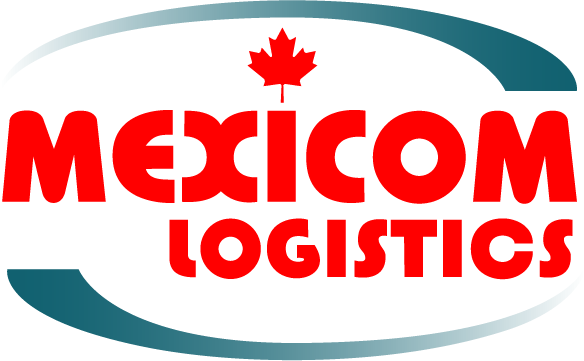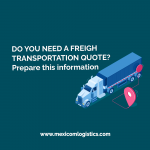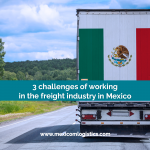The future of freight: we should all pay attention
The future of freight has an important role in economics and the current world situation. Due to its environmental cost, the future is demanding adjustments in this business to help us get a more sustainable life and slow down climate change. Keep reading and find out what we need to shift in this field and the reasons why, we will also discuss the alternatives that will allow us to ensure that the future of freight will be good for everyone involved.
Almost everything that we use gets to us thanks to freight transportation, from clothes and food, up to machinery and building materials. This industry is in charge of goods transportation and storage throughout large distances that are covered by road, sea, or air, as well as the last mile delivery that gets merchandise into consumer’s hands. This way, the impact, and development can be seen locally and all around the world.
Environmental impact of freight transportation
The freight industry is in charge of a large percentage of pollutants and gases released into the environment, which are largely responsible for the critical situation that the planet is facing. To this, we have to sum up that terrestrial freight transportation has to do with 65% of this field’s pollution. On top of that, we have to add emissions that are the result of oil production for trucks, which can add millions of tons in the fight against climate change.
Freight transportation payment has outgrown itself in the last couple of years, especially since the Covid-19 pandemic began. The actions taken to reduce breakouts took the online sales to the roof and add stress to supply chains. Expectations related to service performance have become even more demanding, and they have turned into an additional stress factor in the field that calls for alternatives that allow it to be more efficient and sustainable while satisfying the customer’s demand.
Due to the population increase and economic development, it is possible that in 2050 the CO2 emissions of the freight industry go up 22% if we do not apply additional measures to solve the problem. The goal is to avoid global warming from a 1.5 °C increase and stop the global crisis, for this is necessary to design more strict and ambitious environmental policies that allow us to reduce the emissions in the industry by 70%.
Is electric transportation the way to go?
To reduce the carbon footprint of the industry and relieve the world from its effects, an alternative could be clean energy. Electric transportation produces 67% less CO2 emissions every year than diesel and gas vehicles, besides, in the long run, they can be even more profitable than the ones that the others.
Even tho it is possible to find every time more transportation options (especially for passengers), we need to spread the electric energy usage to the total of vehicles that are being used to merchandise transportation. Collaboration between companies in the development of electric freight vehicles that are functional and accessible could accelerate its availability and use, which is needed to go from carbon energies to clean ones.
We also need to think of policies that regulate electric freight vehicle production and sale; which should also contain the public infrastructure needed for them to work efficiently, such as the recharge stations installation. Its promotion by financial endorsements is also a must for them to become the more profitable option, and this would stimulate freight companies to buy them. Despite the multiple elements that we need to take into consideration as this sustainable future becomes a reality, it is a worthy investment.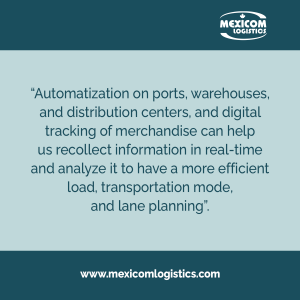
Optimize your processes with technology is essential
Another way of reducing the clean energy that we use on freight transportation and minimize its environmental impact is to optimize processes by automatization and digitalization. These technologies help us do repetitive chores that are ruled in a more efficient way, as well as systematize information that helps us plan, supervise and predict the different actions and variables that take place in the supply chain.
According to the Environmental Defense Fund, one of every four trucks on the highway is empty, while nearly the third part of those loaded goes to waste. Automatization on ports, warehouses, and distribution centers, and digital tracking of merchandise can help us recollect information in real-time and analyze it to have a more efficient load, transportation mode, and lane planning. By taking advantage of the capacity and availability of transportation, we can reduce the number of trips, the miles covered, and the contaminant emissions.
One step further may imply accessibility policies focused on the availability of resources without it needing larger or faster mobility. This way, instead of having longer or faster supply chains, consolidated loads and shorter supply chains could cover the demand through even more reduce areas. These changes would imply a mobility reduction of 18% in the terrestrial freight business.
The future of freight begins now
Alternatives that involved electric and automatized transportation with self-driving vehicles, drones, and robots are at the test stage on some companies. More sustainable technologies, the change into clean energy freight, and the process optimization, as well as the implementation of some other options that have in mind the planet well-being will require initiative and participation of the consumers, corporations, and governments. The spread of all this in the whole freight industry will take time, however, today is the best time to invest in the future we want.
MEXICOM LOGISTICS IS A 3PL DEDICATED TO OFFERING RELIABLE TERRESTRIAL FREIGHT TRANSPORTATION AT AFFORDABLE PRICES THROUGHOUT NORTH AMERICA. FIND OUT MORE ABOUT OUR SERVICES HERE.
ADVANTAGES OF WORKING WITH A 3PL LIKE MEXICOM LOGISTICS:
- Time and personnel administration. When you have a logistics supplier, you can focus on other things, like sales or product development.
- Cost reduction. This kind of supplier has better deals with suppliers, therefore, they can offer you better pricing adapted to your load’s volume and flow.
- Adaptability. They can easily adjust to changes in flow and volume of loads.
- Speed and coverage. Since you are using the supplier’s carrier network, you can enjoy faster deliveries within their territory.
- Mitigate risks. Delays can happen for several reasons. When this happens, your 3PL can adjust the route to deliver the load as soon as possible.
- International support. If you have a business in more than one country, your 3PL can take charge of procedures and paperwork needed in each one of them.
REQUEST A QUOTE FOR FREIGHT TRANSPORTATION HERE.
